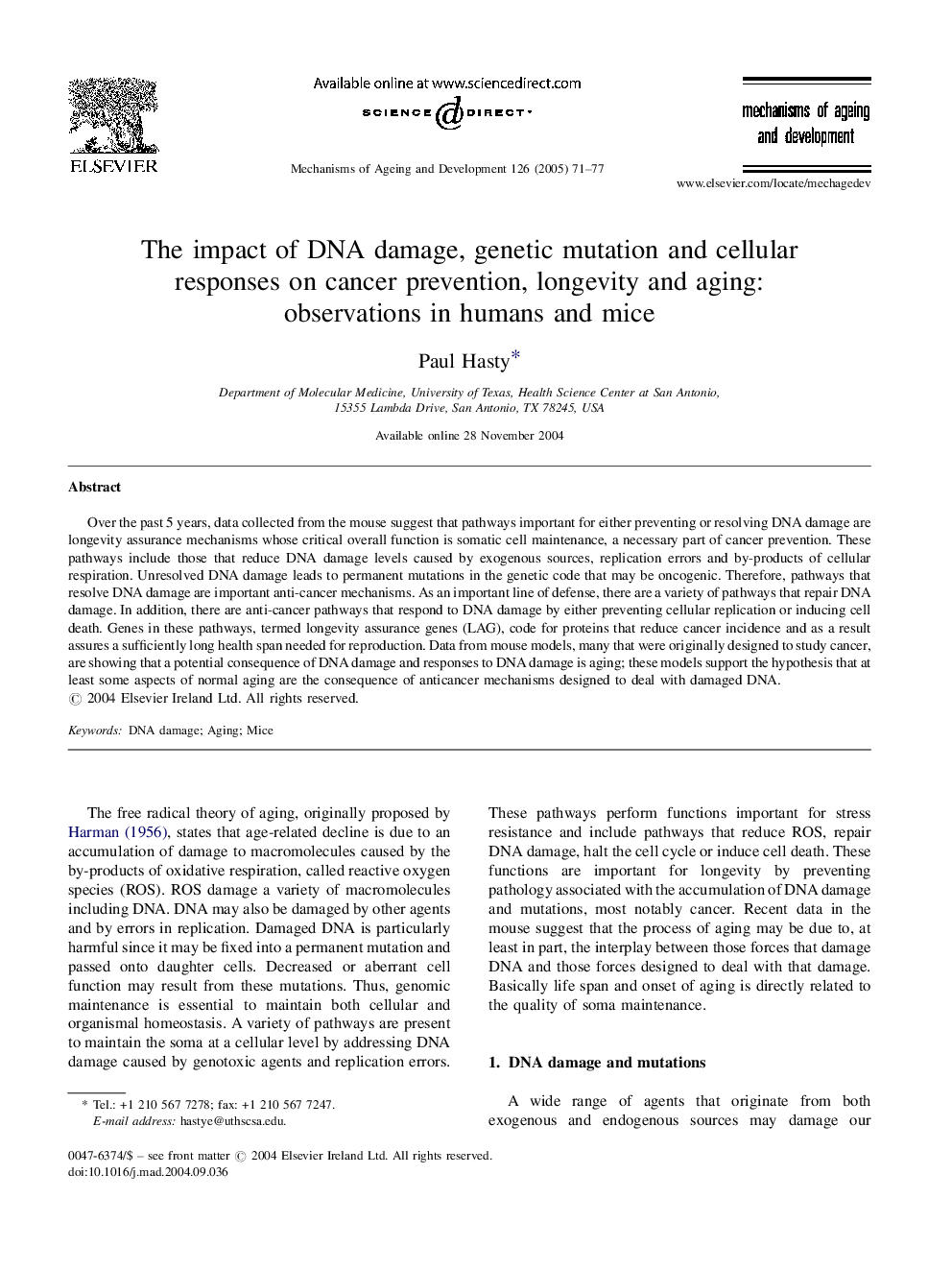| کد مقاله | کد نشریه | سال انتشار | مقاله انگلیسی | نسخه تمام متن |
|---|---|---|---|---|
| 9881383 | 1535701 | 2005 | 7 صفحه PDF | دانلود رایگان |
عنوان انگلیسی مقاله ISI
The impact of DNA damage, genetic mutation and cellular responses on cancer prevention, longevity and aging: observations in humans and mice
دانلود مقاله + سفارش ترجمه
دانلود مقاله ISI انگلیسی
رایگان برای ایرانیان
کلمات کلیدی
موضوعات مرتبط
علوم زیستی و بیوفناوری
بیوشیمی، ژنتیک و زیست شناسی مولکولی
سالمندی
پیش نمایش صفحه اول مقاله

چکیده انگلیسی
Over the past 5 years, data collected from the mouse suggest that pathways important for either preventing or resolving DNA damage are longevity assurance mechanisms whose critical overall function is somatic cell maintenance, a necessary part of cancer prevention. These pathways include those that reduce DNA damage levels caused by exogenous sources, replication errors and by-products of cellular respiration. Unresolved DNA damage leads to permanent mutations in the genetic code that may be oncogenic. Therefore, pathways that resolve DNA damage are important anti-cancer mechanisms. As an important line of defense, there are a variety of pathways that repair DNA damage. In addition, there are anti-cancer pathways that respond to DNA damage by either preventing cellular replication or inducing cell death. Genes in these pathways, termed longevity assurance genes (LAG), code for proteins that reduce cancer incidence and as a result assures a sufficiently long health span needed for reproduction. Data from mouse models, many that were originally designed to study cancer, are showing that a potential consequence of DNA damage and responses to DNA damage is aging; these models support the hypothesis that at least some aspects of normal aging are the consequence of anticancer mechanisms designed to deal with damaged DNA.
ناشر
Database: Elsevier - ScienceDirect (ساینس دایرکت)
Journal: Mechanisms of Ageing and Development - Volume 126, Issue 1, January 2005, Pages 71-77
Journal: Mechanisms of Ageing and Development - Volume 126, Issue 1, January 2005, Pages 71-77
نویسندگان
Paul Hasty,